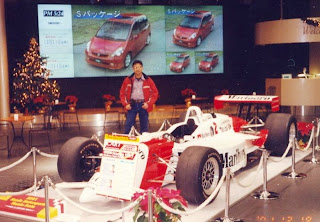The success of lean production, consensus and kaizen was extraordinary. By the early 80's, Japanese companies were beating the Americans ragged in everything from price to quality, and the skies of the Pacific were dark with aircraft carrying managers to Japan to study companies like Sony and Toyota. Bookstores were full of volumes with titles such as "The Art of Japanese Management" and "The 
Yet by the mid-90's, all those books on the secrets of Japanese management were yellowing in the remainder bins and Mr. Ohmae was becoming better known as a critic of Japan rather than an apologist for it.
What had changed was not just that Japan's companies were struggling against a prolonged recession and an expensive currency, crippling though these were. The prevailing wisdom was that Western companies had learned everything they needed to know about Japanese management; now it was the Japanese who would have to learn from the West.
There is no doubt that the West -- and America in particular -- has caught up quickly. Three decades after he had been spurned in his own country, Mr. Deming was rediscovered in June 1980, thanks to an NBC television documentary, "If Japan Can, Why Can't We?" The day after the program was broadcast, Mr. Deming's phone started ringing, and he spent the rest of his life (he died in 1993) giving seminars and being feted by American bosses and politicians. In America, "Total Quality Management ( TQM ) " was the most influential fad of the 80's. In 1987, the American Government created an equivalent of the Deming award, the Baldrige. One of the most successful adopters of the new approach, Motorola Inc., claimed that, in 1987-92, T.Q.M. added $3.2 billion to the company's bottom line.
Western manufacturers have also learned the secrets of "Lean Production," largely by forming joint ventures with Japanese companies. The Ford Motor Company purchased 24 percent of Mazda in 1979, giving Ford's senior managers full access to Mazda's main production complex in Hiroshima.






No comments:
Post a Comment